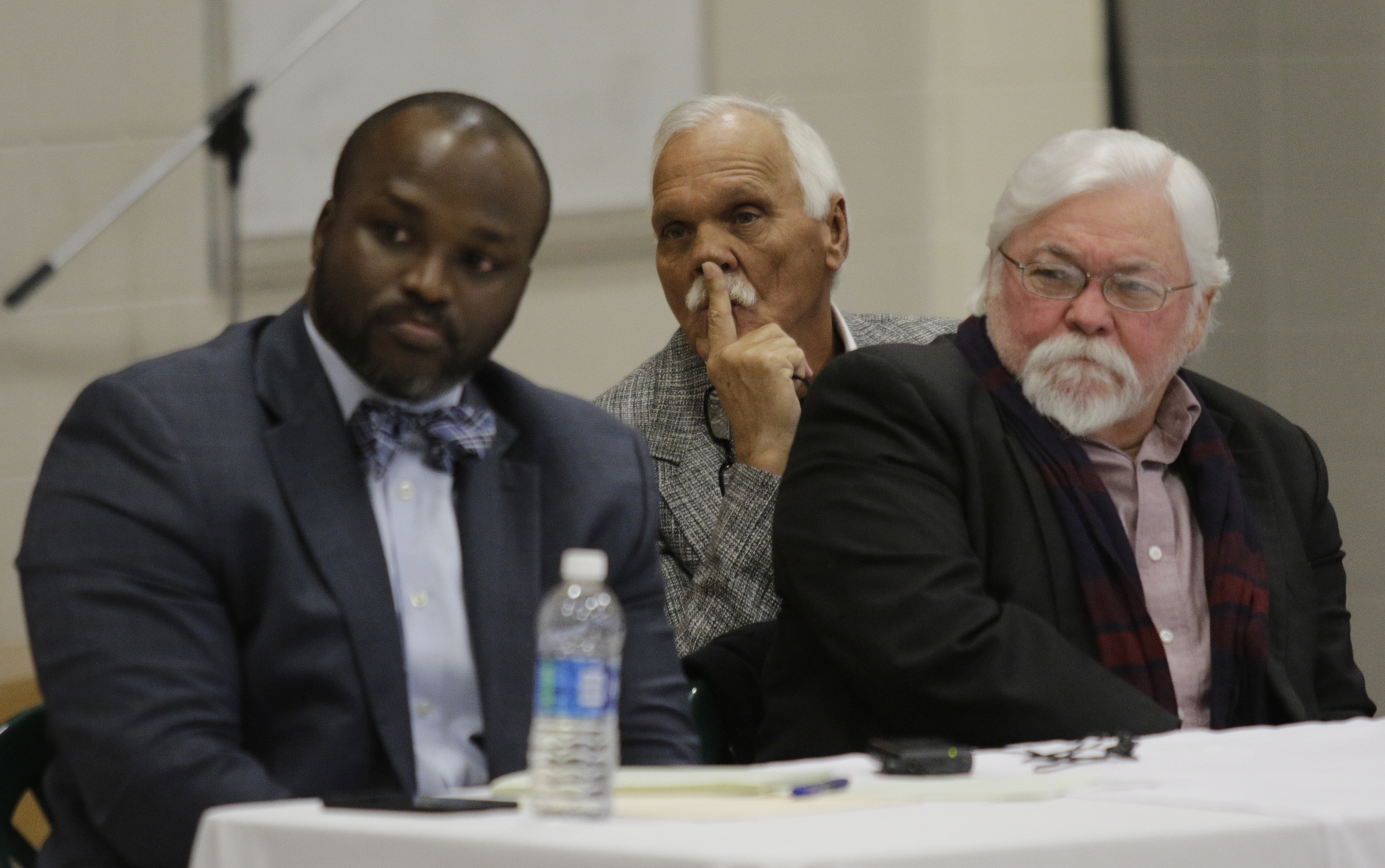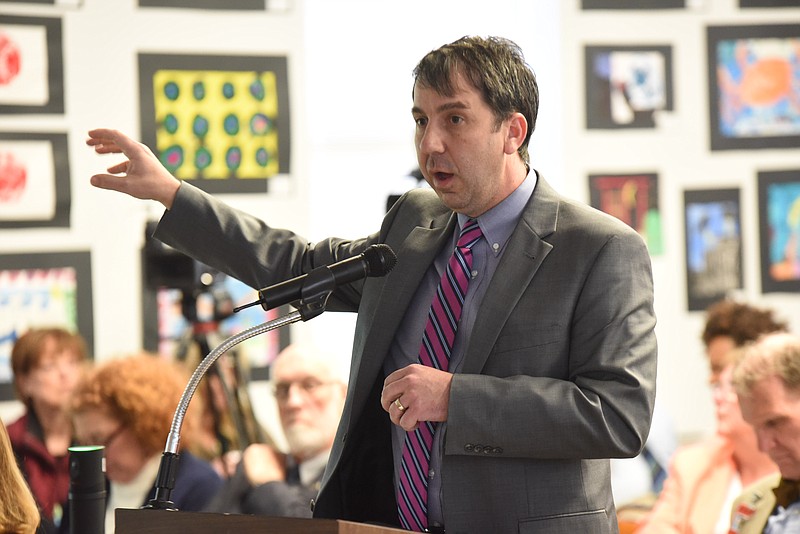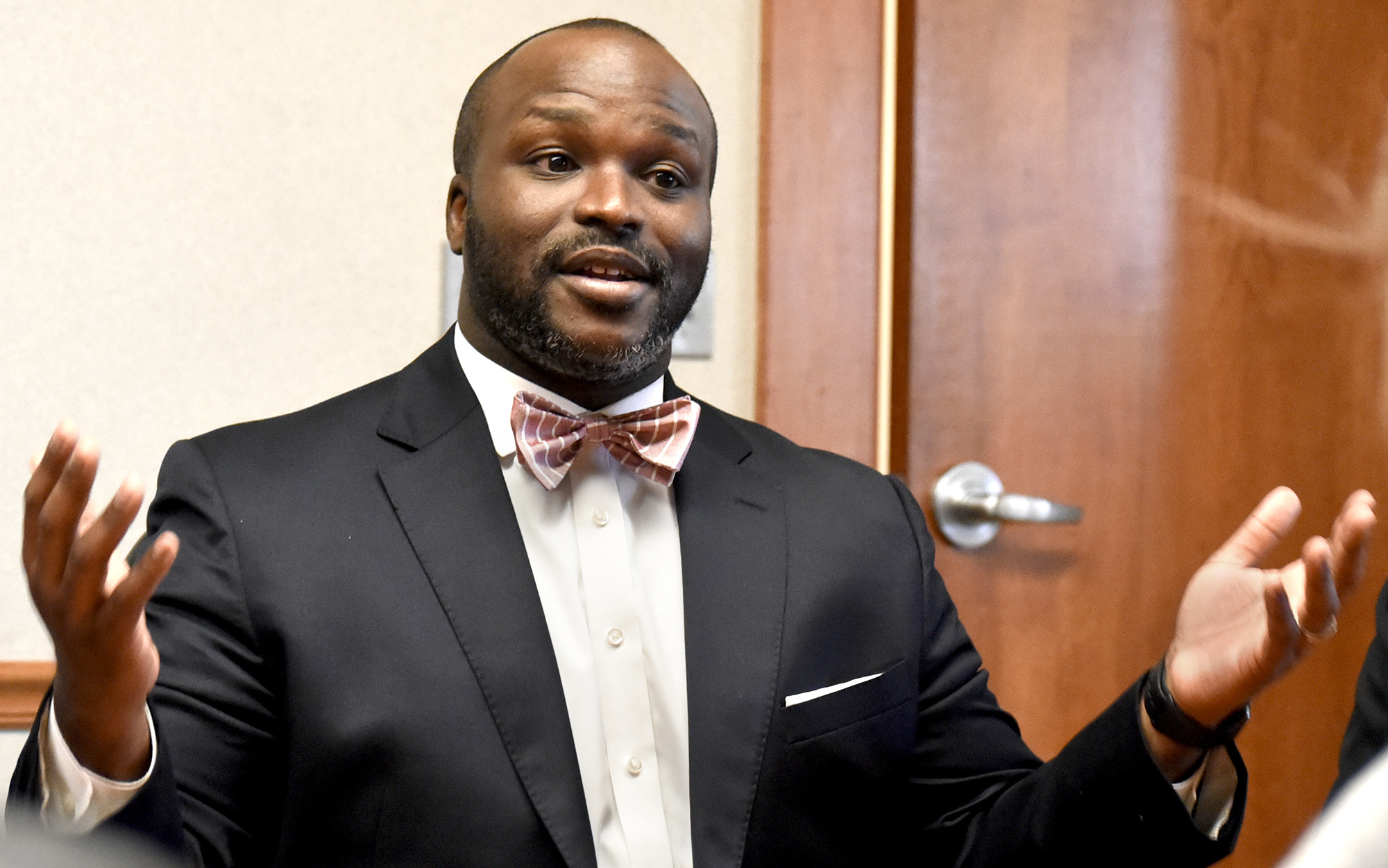Changes in Hamilton County Schools are not stopping with the district rebrand and the launch of the Future Ready Institutes, a new model for career and technical education in the county's high schools, announced in the previous few months.
Superintendent Bryan Johnson has his eyes on the county's middle schools, too.
Last month, Chief Schools Officer Justin Robertson presented data to the school board, highlighting the fact that student achievement begins to decline in middle school.
The percent of county middle schools on track in math was more than 5 percentage points lower than elementary schools, and the percent of middle school students reading on grade level also was lower. Johnson and his team aim to address those gaps with the unveiling of what district officials called Thursday night a "transformation of the middle school experience."
The Future Ready Preps of Hamilton County program consists of a strategy to more robustly support the district's 11 middle schools, they said.
"This will be a comprehensive plan that's aimed to address [gaps]. ... This is the first time we've looked at the middle school experience across the district," said Justin Robertson, the district's chief schools officer.
District officials hope to add social and emotional supports, art classes and better career preparation at the middle school level. Many of these goals are already reflected in the proposed budget with more than $4 million requested to add student support positions.
The biggest component, or expense, of the initiative is the district's goal for every student in middle school to have a laptop or technology device. School officials are looking to this fall for a rollout.
The district has never maintained a ratio of one device per student at any level, though some schools have been able to provide devices for students through grants. The Howard School rolled out its own program several years ago, but has struggled with the recurring costs of such a program since grant funding ran out.
Purchasing a laptop for every middle school student will cost the district around $3 million, which it had already planned for in the beginning stages of technology implementation across the district, according to Christie Jordan, assistant superintendent of finance and purchasing.
As communitywide partners invest in high schools and the new Future Ready Institutes, the district must look to middle school to ensure students are prepared, district officials said.
"It can't just start with the Future Ready Institutes. We need to have the foundational knowledge to get them there," Robertson said. "We're trailing the state in both [English/language arts and] math across middle schools. ... What this tells us is we are getting kids in middle school, particularly in math, and we're not getting them where we need to."
Middle schools will be exposed to their options for both high school and beyond, in part through a career exploration course. Academic interventions will also be provided to ensure the achievement gaps in middle years don't persists, Robertson explained at Thursday's school board meeting.
Some board members were concerned about too much of an emphasis on career planning in middle school though, especially related to how the Future Ready Institutes are tailored.
 Schools superintendent Bryan Johnson, left, and boardmembers Joe Smith, center, and David Testerman listen during a meeting between the Signal Mountain Town Council and the Hamilton County Board of Education at Nolan Elementary on Thursday, Jan. 4, 2018, in Signal Mountain, Tenn. Signal Mountain officials and members of the board discussed the town's consideration of splitting from the Hamilton County school system to form their own independent district.
Schools superintendent Bryan Johnson, left, and boardmembers Joe Smith, center, and David Testerman listen during a meeting between the Signal Mountain Town Council and the Hamilton County Board of Education at Nolan Elementary on Thursday, Jan. 4, 2018, in Signal Mountain, Tenn. Signal Mountain officials and members of the board discussed the town's consideration of splitting from the Hamilton County school system to form their own independent district."I realize that we are going with this, but I hope with this middle school retooling, I hope that we don't make it all about career readiness, because as a parent, that makes me worried," said board member Tiffanie Robinson, of District 4.
Board member Joe Smith of District 3 echoed Robinson's concerns.
"I hope when we're talking about career exploration, we're talking about, what's your passion," he said.
District officials, including Robertson and Johnson, ensured that the strategy was a comprehensive plan.
"As a father thinking about a child who is going into our middle schools, I want my child to experience success all three years, and we want that for all of our 44,000 students," Johnson said.
Johnson acknowledged that with the current achievement gaps in middle schools across the district, what's being done isn't good enough.
"We know this is a gap for us," he said. Johnson also added that this wasn't a "one-off program," but a districtwide approach.
The district historically loses the most students to private schools, of which almost one in four children in Hamilton County attend, between fifth and sixth grades, when students start middle school.
Board member Rhonda Thurman, of District 1, also voiced concerns over some of the social and emotional initiatives planned for such as positive behavior interventions, restorative justice and mindfulness because of the discipline problems already seen in middle schools.
"Is this nurturing environment what we are currently doing? Because it's not working," she said. "I think this is a lot of the failure in middle school, because middle school is where kids really start pushing the envelope."
Robertson noted that there were schools doing great work, but there has not been a district-wide approach, especially to discipline and behavior practices from school to school.
"This is not just an academic endeavor. It's important that we provide rich experiences, but we also have to address the social and emotional needs our students are going to us with," Robertson said.
Contact staff writer Meghan Mangrum at mmangrum@timesfreepress.com or 423-757-6592. Follow her on Twitter @memangrum.

